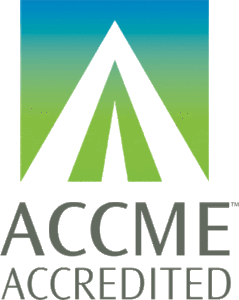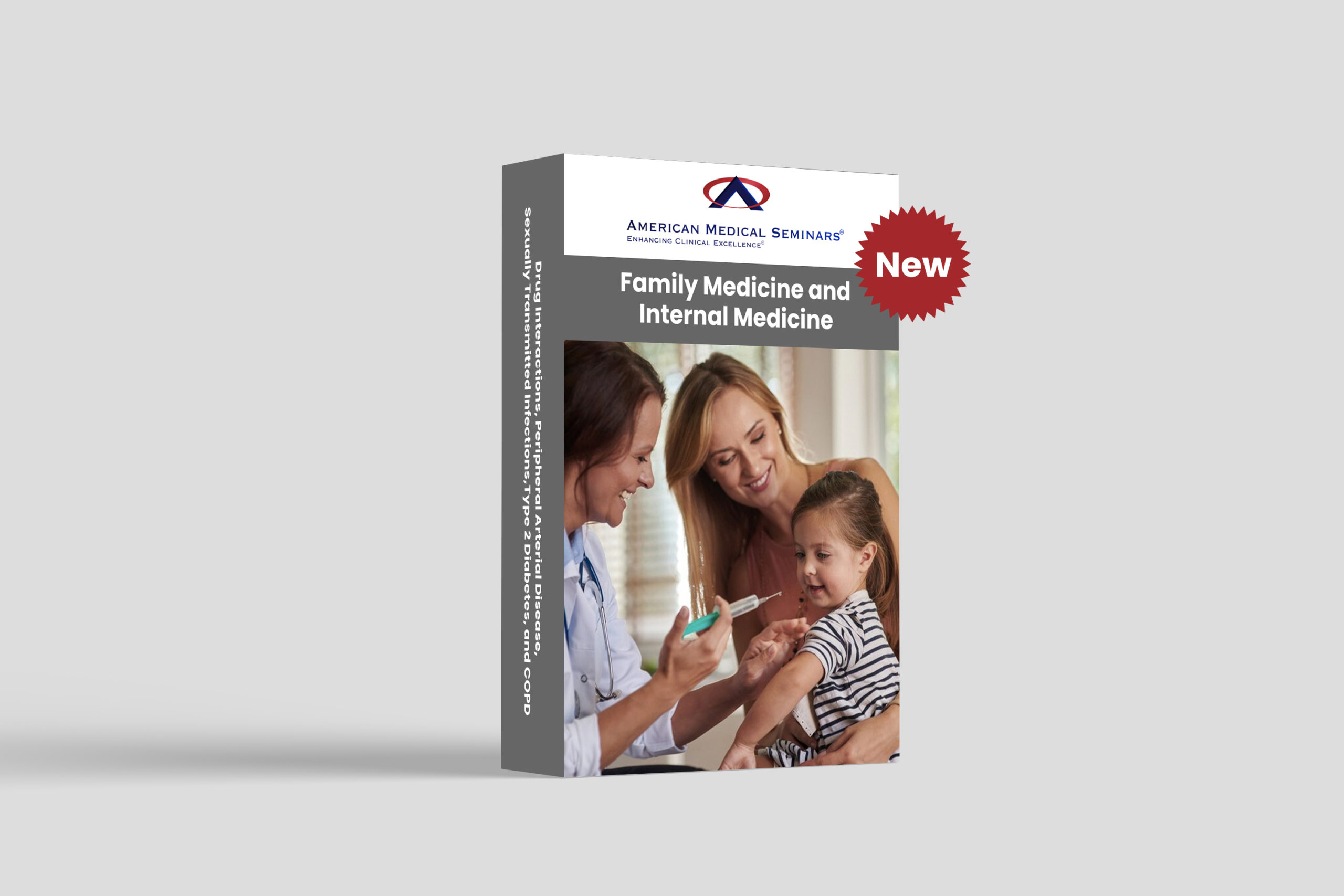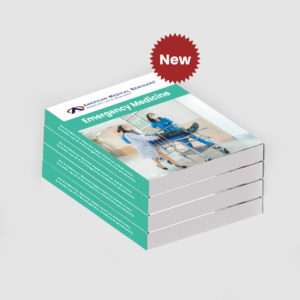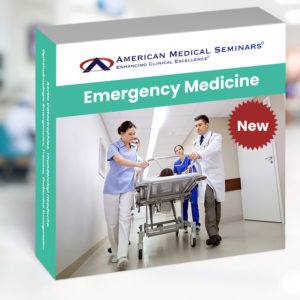Accreditation
AMA
American Medical Seminars, Inc. designates this live activity for a maximum of 5 AMA PRA Category 1 Credits™. Physicians should claim only the credit commensurate with the extent of their participation in the activity.
Accreditation Statement
 American Medical Seminars, Inc. is accredited by the Accreditation Council for Continuing Medical Education (ACCME) to provide continuing medical education for physicians.
American Medical Seminars, Inc. is accredited by the Accreditation Council for Continuing Medical Education (ACCME) to provide continuing medical education for physicians.
Title: Family Medicine and Internal Medicine: Drug Interactions, Peripheral Arterial Disease, Sexually Transmitted Infections,Type 2 Diabetes, and COPD
Course ID: W-20220829-Family Medicine and Internal Medicine-2
Faculty:Herbert L. Muncie, M.D. and Michael P. Goldfinger, M.D., F.A.C.P.
Original Release Date: August 29, 2022 Expiration Date: August 29, 2025
Topic 1: Drug Interactions and Side Effects Upon completion of this session, the participant should be able to: EBM, COMP
- Determine the most common mechanisms for drug interactions.
- Identify some of the most frequent culprit drugs such as Warfarin and Acetaminophen, AED’s, NSAIDs, and Statins.
- Counsel patients regarding some of the most frequent side effects seen with commonly used medications.
- Employ The Joint Commission 2016 Ambulatory Care National Patient Safety Goals.
Topic 2: Peripheral Arterial Disease (PAD) – A Primary Care Perspective Upon completion of this session, the participant should be able to: EBM, COMP
- Assess the relationship between PAD and other forms of atherosclerosis.
- Determine which patients are at increased risk for PAD.
- Perform a focused history and physical examination to assess for PAD.
- Determine when to use ancillary testing.
- Develop a plan for managing patients with PAD utilizing evidence-based ACC/AHA and CHEST guidelines for exercise, medications, and revascularization.
Topic 3: Treatment of Sexually Transmitted Infections Upon completion of this session, the participant should be able to: EBM, COMP
- Determine the appropriate diagnostic testing for complaints suggestive of a sexually transmitted infection.
- Select the therapy for the commonly encountered sexually transmitted infections.
- Formulate the follow-up testing and evaluations for sexually transmitted infections.
- Recommend therapeutic options for preventing herpes simplex infections.
Topic 4: Treating Patients with Type 2 Diabetes Mellitus Upon completion of this session, the participant should be able to: GL, COMP
- Evaluate the therapeutic goals in treating type 2 diabetes and their impact on morbidity and mortality.
- Recommend the approach for choosing an oral hypoglycemic agent to treat type 2 diabetes.
- Specify the clinical situations that would require the use of insulin to treat type 2 diabetes and the probable dosage form and average amounts required for control of A1c.
- Develop the therapeutic options for preventing diabetic complications.
Topic 5: Chronic Obstructive Pulmonary Disease (COPD): Evaluation and Treatment Upon completion of this session, the participant should be able to: EBM, COMP
- Appraise patient specific data to determine if they meet diagnostic criteria for COPD.
- Analyze the role of cigarette smoking in the etiology and natural history of COPD.
- Formulate a treatment plan for the stages of COPD.
- Recommend the follow-up required to assess the therapeutic efficacy of the treatment options.
- The receipt for any incentive-associated purchase will designate the value of the gift card separately from the cost of the learning activity.
- This incentive may have implications on your tax reporting obligations. Any reimbursed amount must be declared as personal income for tax purposes.



